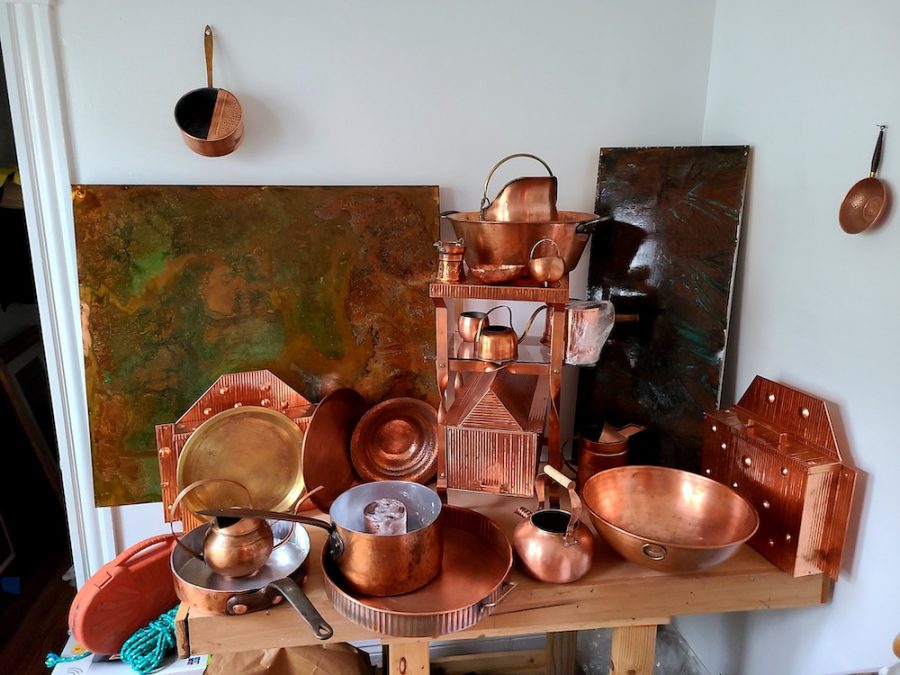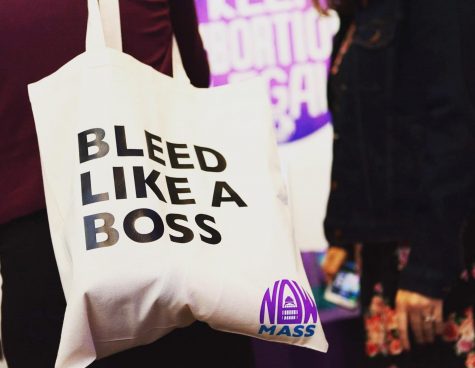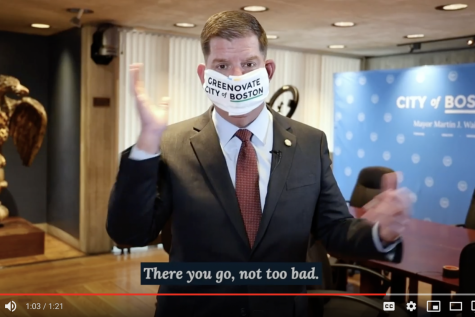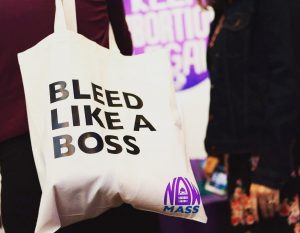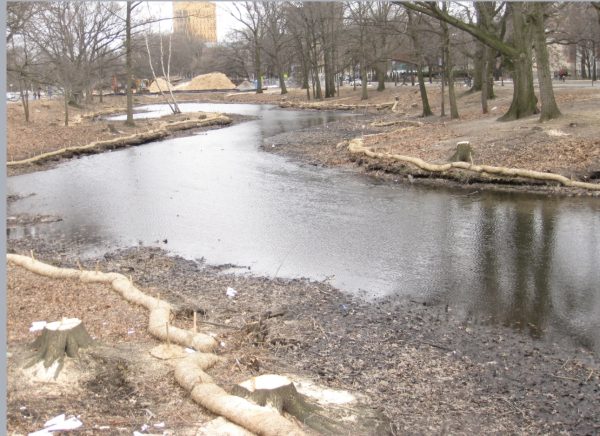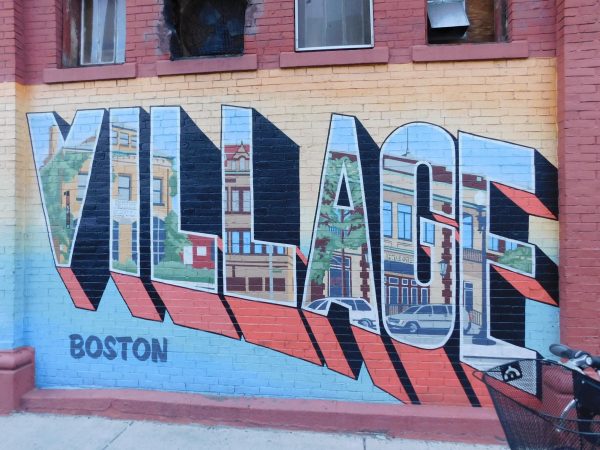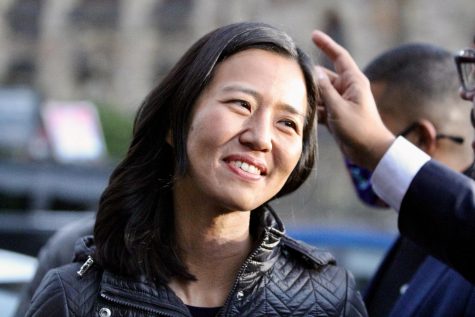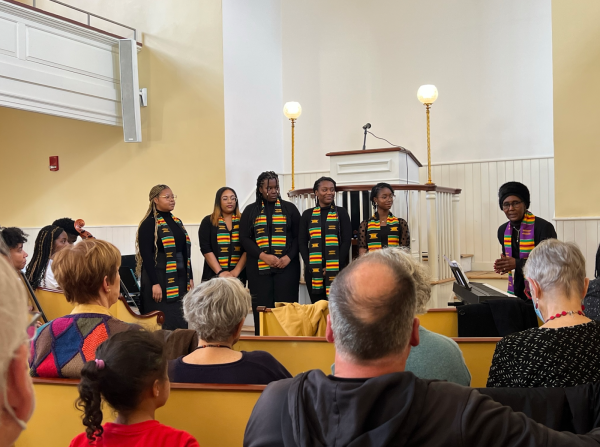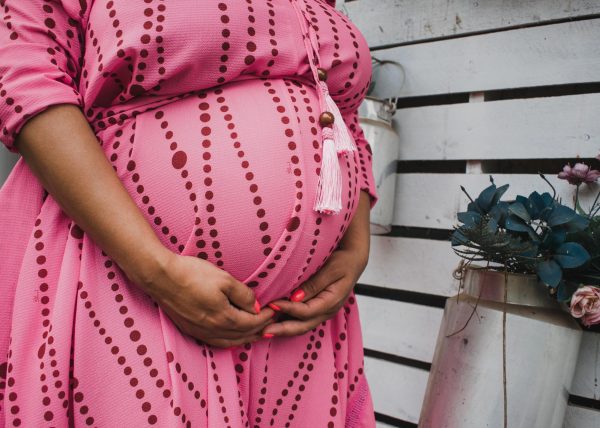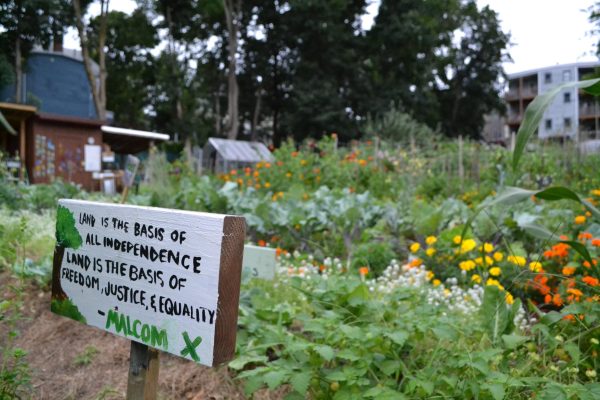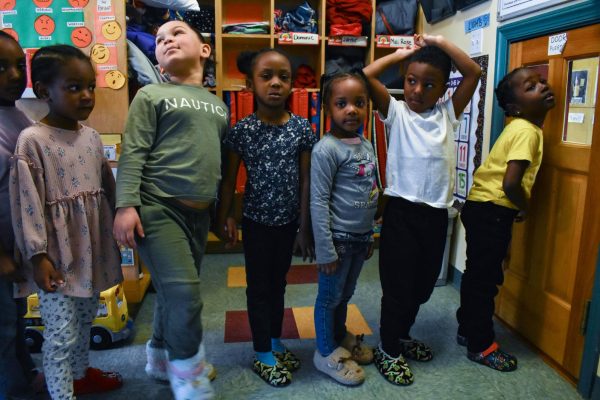Dorchester craftsman calls for support to train previously incarcerated people at The People’s Academy
Founder T. Michael Thomas wants to train at risk youths, previously incarcerated people and help them get jobs. But he needs funding to expand this work.
As a Black man working in the building trades, T. Michael Thomas saw there are not enough Boston residents, women, or Black and brown people in his industry. So he left his job at the Sheet Metal Union and started training previously incarcerated people and inner-city, at risk youths for the building trade at The People’s Academy in Dorchester.
The only prerequisites for participants to enroll in the Academy is that they are at least 18 years old and that they bring an open mind ready to learn and work with others.
“We especially work with individuals who are high school dropouts, who society deems odd and no good, who feel useless, we take them,” Thomas said. “Also people who’ve been incarcerated, that no one else wants to give them a chance.”
Founder Thomas has worked for over 20 years as a craftsman specializing in copper fabrication and installation. His work can be seen in the restoration of historic buildings in Boston such as the The Elizabeth Stewart Gardner Museum, the Massachusetts State House, the Christian Science Building and Hotel Springfield.
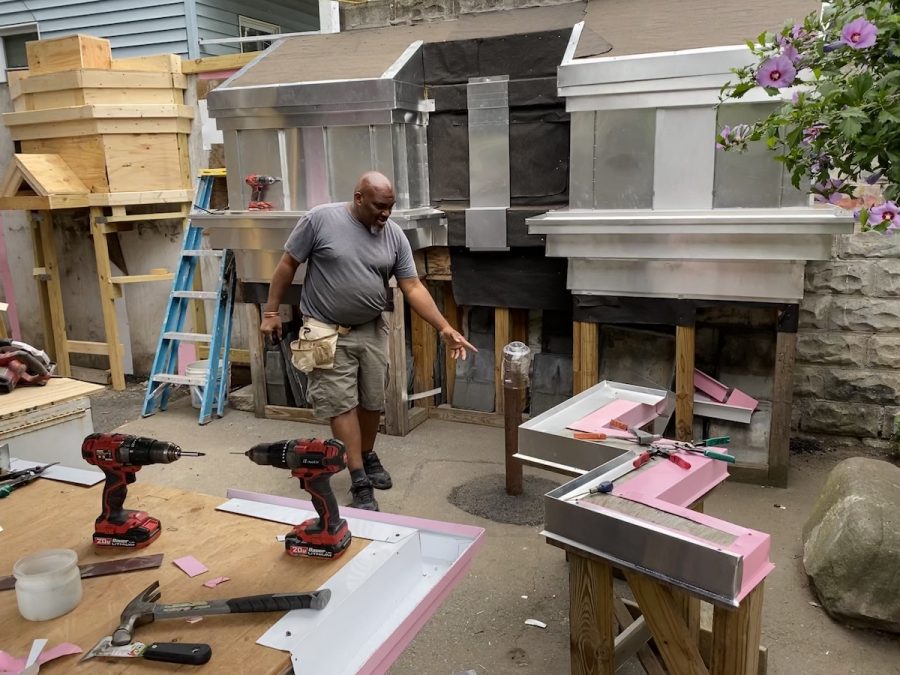
In the two year apprenticeship program at the Academy, participants get to learn the basics of fabrication and installation of metals, with a specialization in copper. When they are ready, the students work with Thomas on real life projects, the most recent of which is the copper canopies for a restaurant outside the South Bay Center. Participants don’t have to pay any fees and receive stipends, most of which, Thomas said, come from his own pocket.
“I do private contracts, the money and the profit that I get from it, I take that. And I get individuals from the neighborhood,” he said. “I pay them a stipend and I teach them the trade without any public assistance.”
Trainees from the Academy have left to pursue different careers, some staying in construction, while others go on to be accountants, managers, electricians or police officers.
“It depends on what they want to do,” Thomas said. “And so we support that to get them on the right path that they want to be on.”
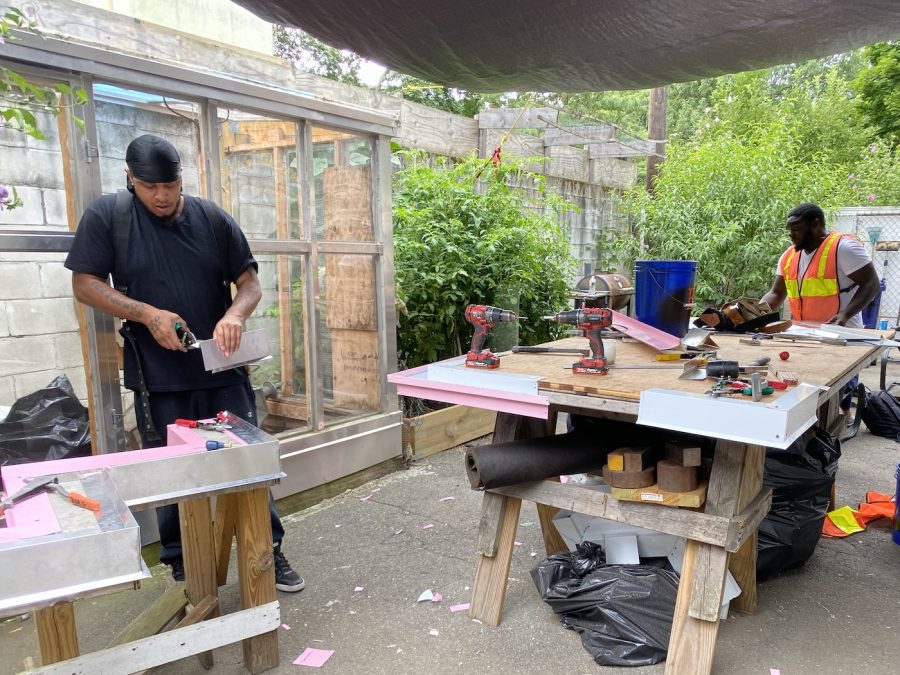
After operating over 15 years and providing training for over 300 people, the majority of whom were previously incarcerated or at risk, the Academy has yet to receive any consistent funding on a federal, state or city level.
“The jury’s still out, I’m still waiting,” he said.
This year, the organization received a grant from the Boston Resilience Fund as part of the city’s effort to support communities disproportionately impacted by COVID-19.
“That’s what we use to provide a stipend for the students now,” said Tanisha Stephney, executive director of The People’s Academy.
Parts of the funding from the resilience fund, Stephney said, are also used to provide fruits, vegetables, masks and hand sanitizer to seniors and community members in need.
Residents in the neighborhood who know about Thomas’s work occasionally make donations to the Academy.
“We have numerous supporters, one of our most recent gave Chromebooks to the students and we have a partnership with them, and wanted to work on historic properties within the City of Boston,” Stephney said.
The People’s Academy’s goal is to enroll and graduate 30 students per year but since it doesn’t have a constant stream of donations or grants, Stephney said, there are struggles to continuously provide participants with the training and a stipend.
“Now funding is a huge need for The People’s Academy … So we’re looking for a lot of support. And anyone out there who is able to provide that support will be extremely helpful,” Stephney said.
“It’s whatever you can do, whether it’s a phone call or a handshake, anyone can help, whether it’s $1 or $1 million dollars, everyone can help,” Thomas said.
Putting money into organizations like The People’s Academy either through government funding or individual donation, Thomas said, is a worthy investment for taxpayers because it provides a service that keeps people from returning to prison by training them to be employable so they can contribute to the economy and society. In Massachusetts, the average annual state prison cost per inmate in 2015 is $55,170 according to a report by the Vera Institute of Justice.
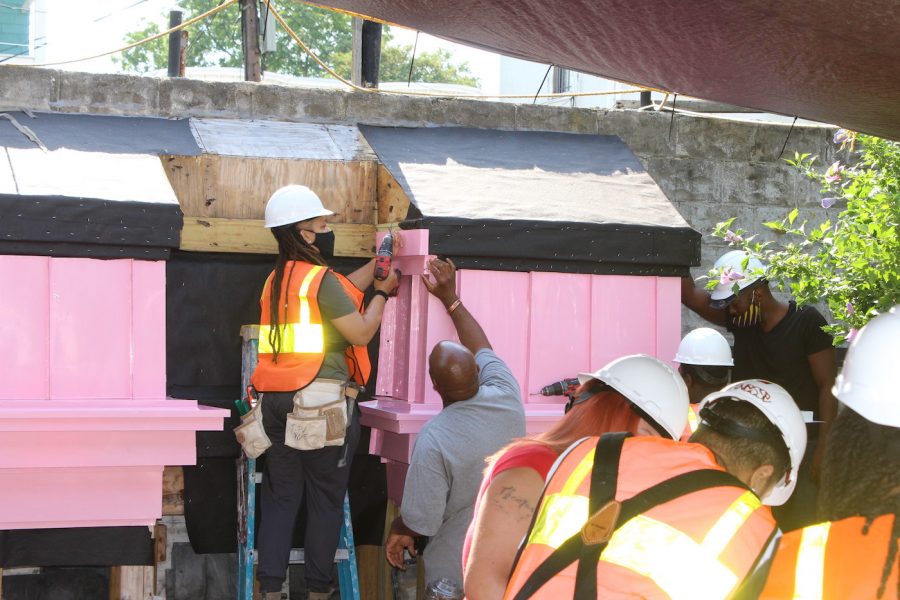
“The People’s Academy solution is to help the taxpayers get a break by providing a service to get people off the system, that they’re contributing to the economy, into society, the families and the community,” Thomas said. “People go on in and out of jail because they’ll come home with nothing to do. But if you teach them a trade, they’ll survive a lifetime, they don’t have to go back and keep doing the same thing.”
29-year-old Paul Francis, previously of Dorchester and now living in Stoughton, is one of Thomas’ current trainees. He was introduced to The People’s Academy when he was a teenager, through his mother, who lives on the same street as Thomas.
“Originally it started from the trouble I made, so my mother spoke to T. Michael,” Francis said. “I wasn’t old enough to hold a job on the site yet, but they gave me some cash and they wanted to help me out. And then eventually, when I got to the age [of 18], he brought me into the trade.”
“The trade here is a rare trade, not a lot of people know how to do it. And it’s a unique trade now, it can help you get a job as far as constructions, but not just the construction part, ” he said. “We deal with fabricating metal, so you could actually take the knowledge from the metal, the metal fabrication and bring it to carpentry. It’s all about numbers and measurements and fitting things inside of stuff and stuff like that.”
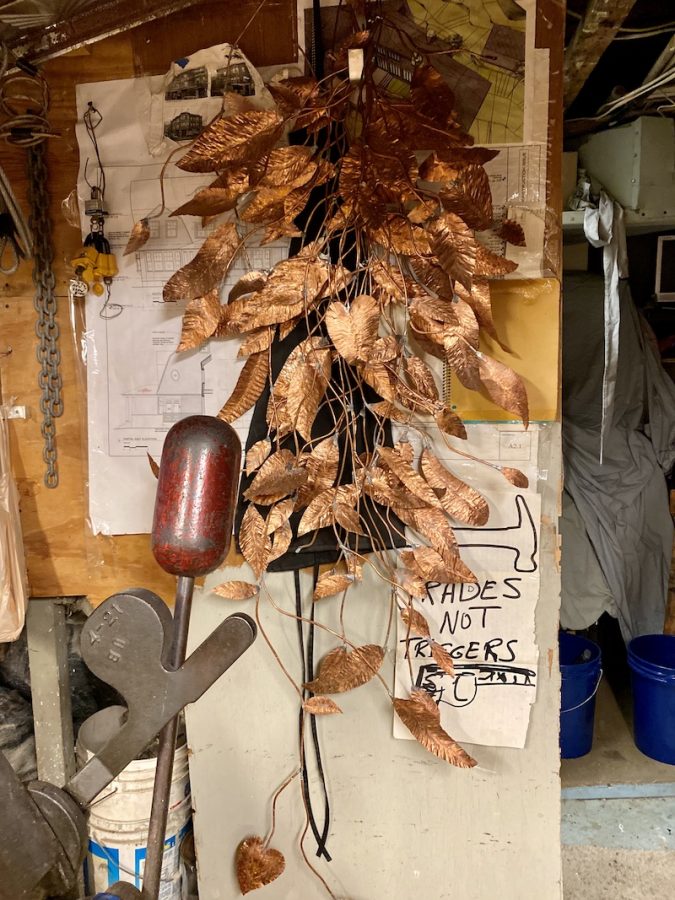
Francis said he learned a lot from Thomas.
“He’s like a real stickler of punctuation and stuff like that,” Francis said. “So I’ve learned that, I learned discipline, because there’s certain things I like to do but I can’t do before coming to work or while I’m at work, so that just helps me mature a little bit. I really learned how to communicate with people.”
“My future plan is to be one of the best teachers in The People’s Academy,” Francis said.
Discipline, structure and manner in work are qualities that Thomas try to instill in his trainees.
“As far as employment goes, when they leave here, they have the mindset of it’s not just a job, it’s a career,” he said. “If someone tells you to be there at six o’clock, be there quarter of six.”
The training, he added, also teaches trainees temperament, how to carry themselves, how to dress properly, not only in a professional setting but also in their personal life.
“So when they go out there, they know that ‘I’m going to do this, I’m going to do that because it’s going to get me from here to the other side,’” he said. “[The trainees] might have been a person that is slightly aggressive on how to interact with their friends or their partner … but when they come in here, it’s like a family, there’s a certain way you speak to someone, a certain way you expect to act. So it sort of takes all the rough edges off. And that’s what we do here, it’s all around.”
As the program expands, the Academy is waiting for approval from the City of Boston for a plot of land to build a new school with housing for trainees. Stephney said the Academy plans to add other components to the training besides the copper trade, such as cooking, counseling, entertainment, among other things.
“Whatever they want to learn, we want to be able to provide it,” she said.
To complete the project, the Academy is looking to raise $28 million before 2022. “We’re definitely putting together resources to raise funds because that’s hugely necessary for the plan,” Stephney said.
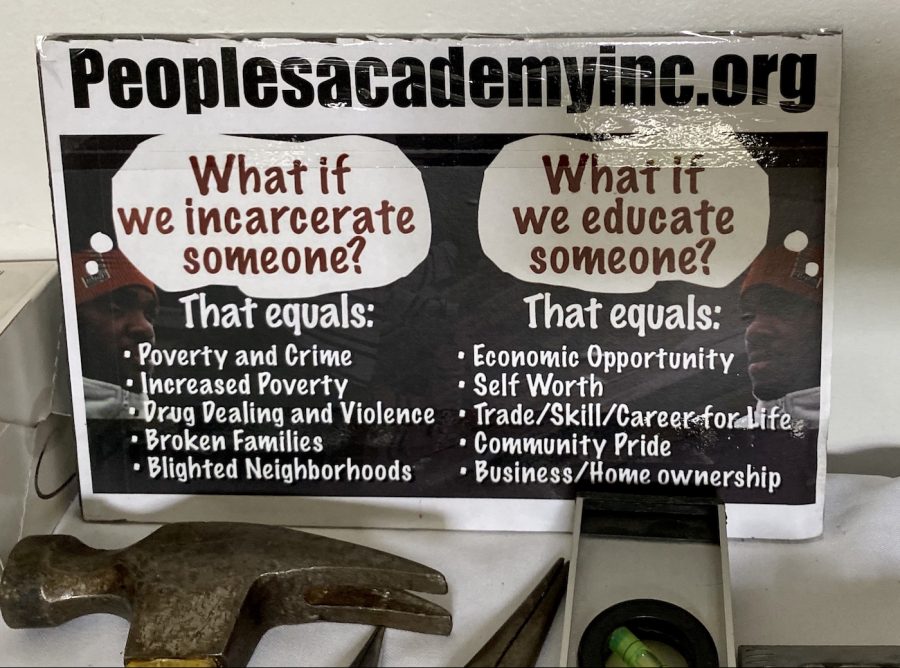
“The prison industry is costing the taxpayers $80 billion a year, right? You help us build a training component and we can save the American taxpayers between $25 and $35 billion between 15 to 25 years.” Thomas said. “And at the same time, we create an army of workers that’s rebuilding people’s homes at a high quality at a low cost … So it’s a win win all around. Why not invest into something like this?”
Thomas encourages individuals who want to donate to the project but are skeptical to come see the work at the Academy.
“The People’s Academy welcomes you, before you give us any money or any support, to come and see for yourself what we do to add the value to the American people and the rest of the world,” he said. “That’s all we ask.”
Readers can reach out to The People’s Academy through its website peoplesacademyinc.org. Below are more artworks by Thomas and trainees at The People’s Academy:

